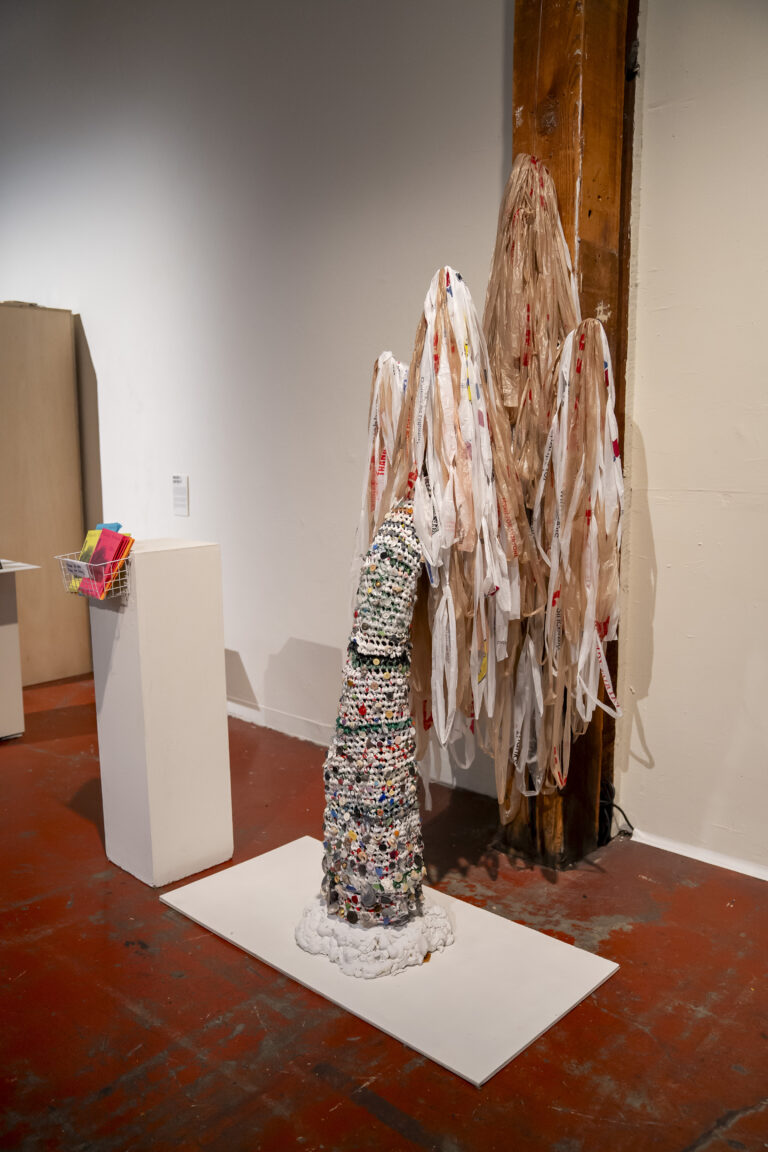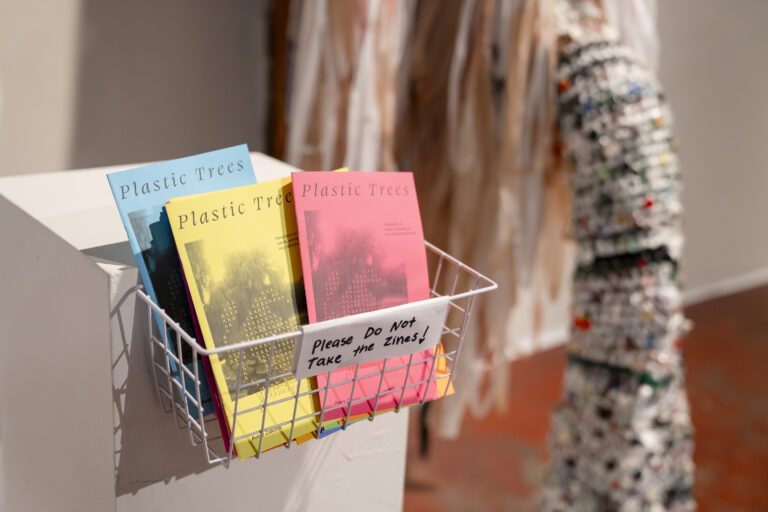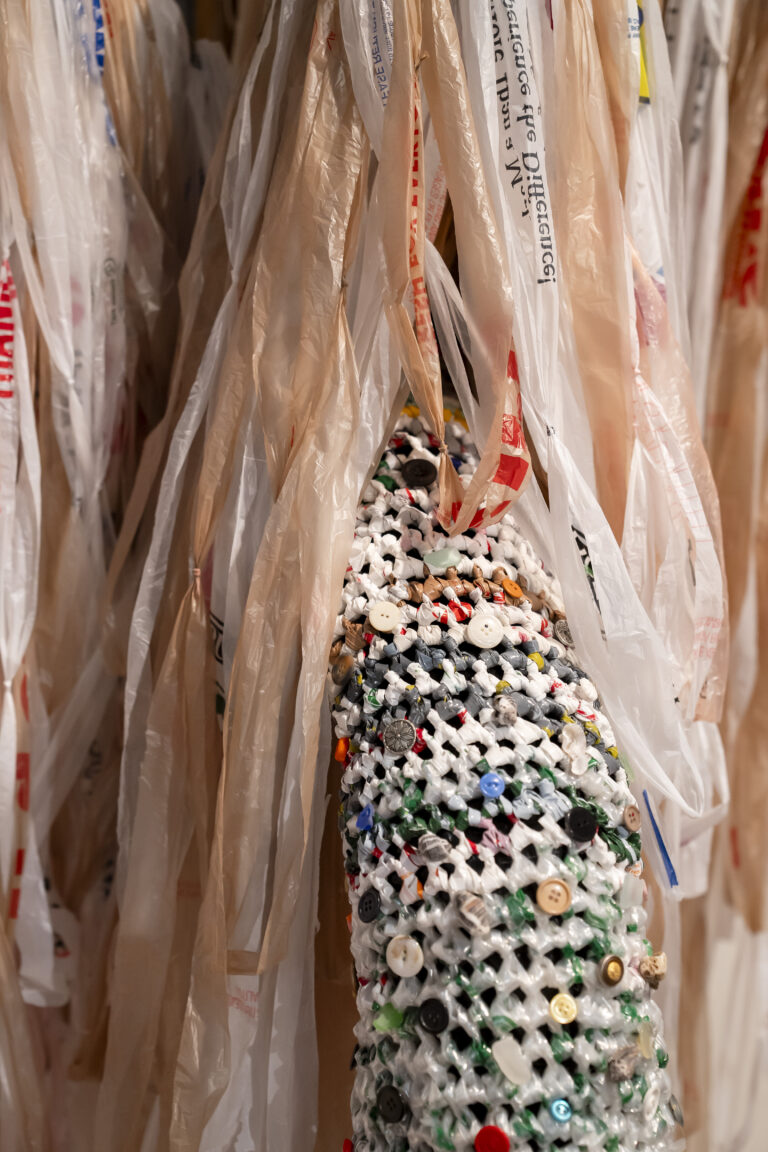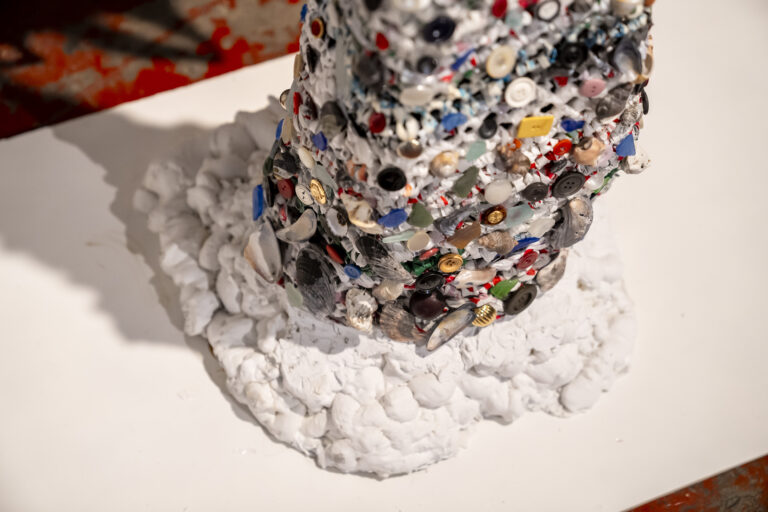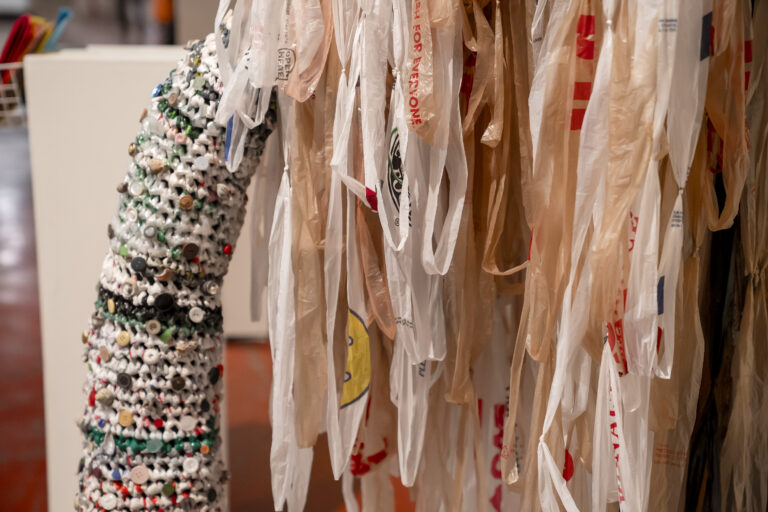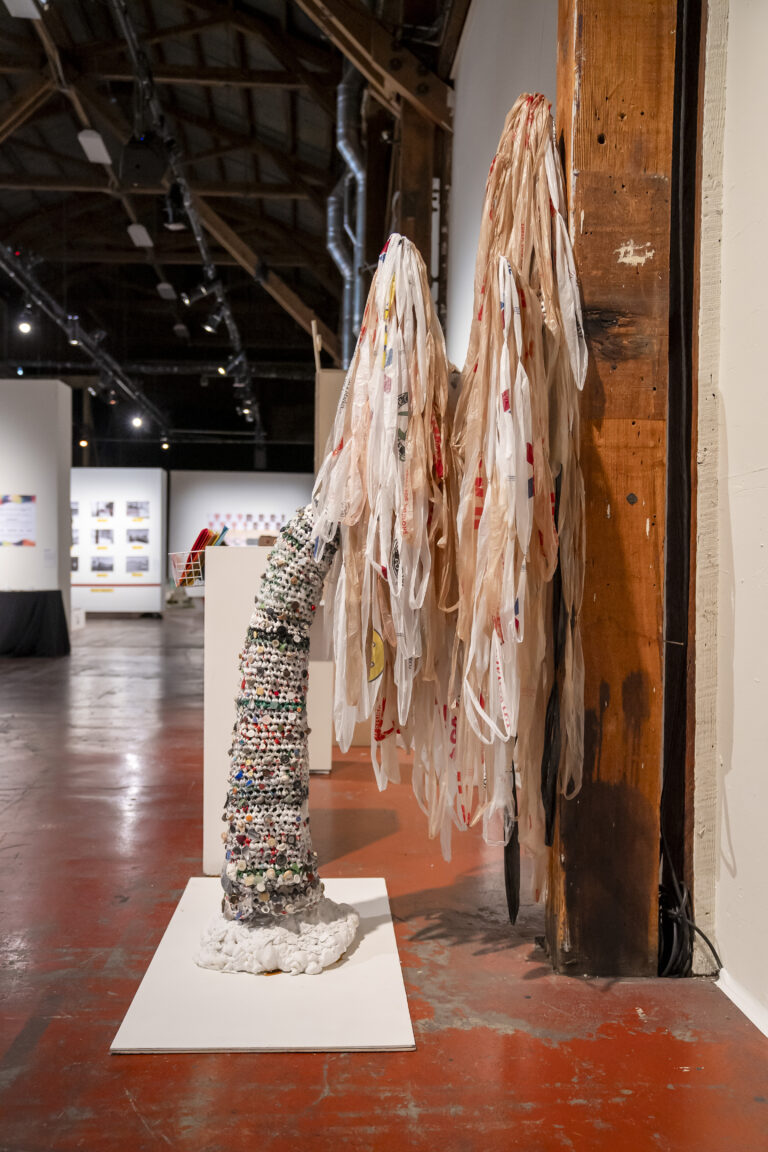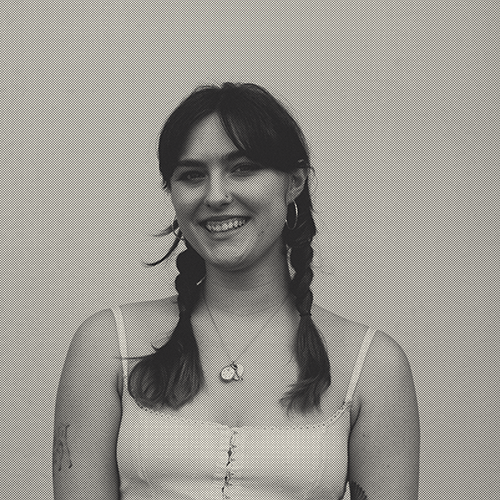
AVERY ZAKOCS
she/her/hers
Design Major
I am a multidisciplniary artist who explores design, illustration, and textile arts. Born and raised in North Carolina, I spent a lot of time in nature, giving me a profound reverence for the natural world and its intricate interplay with human existence. Through my art, I aim to invite viewers on a journey of introspection and reflection, inviting you to contemplate the intricate web of connections that binds us all.
Plastic Trees
Growing up, my mother passed on to me the skills of crafts given to her by her mother. Along with this knowledge came stories, culture, and shared traumas. These skills form the foundation of Plastic Trees. They are not just techniques; they are a living testament to the resilience and creativity of generations of women in my family and community.
Plastic Trees explores the intricate relationship between humanity, nature, generational wisdom, and womanhood. Using recycled plastic sourced from my community, a tree is formed, embodying the heavy feeling of humans impact on the natural world. The choice of material serves as a powerful metaphor, highlighting how the plastic we consume daily is carried within us, with microplastics found in out lungs and blood, and has fundamentally altered the world around us. Furthermore, the plastic is not only a physical presence in our lives but also carries with it the stories, traumas, and memories of those who have used and discarded it.
Incorporated into the plastic are found objects imbued with personal and emotional significance, allowing the sculpture to transcend as an object for viewing to become a sacred space for reflection on individual stories. These objects serve as tangible reminders of the ways in which craft functions not just as an art form but also as a community medium, connecting people across time and space through shared experiences and traditions.
Plastic Trees also delves into how trauma is passed on through generations, not just as memories or stories, but as embodied experiences that shape our relationships with nature and each other. In the same way physical objects and knowledge can be passed down, so can feelings and experiences of trauma. Trauma can leave an indelible imprint on the body, influencing our perceptions, behaviors, and interactions with the world around us. I hope to challenge you to recognize the profound impact of trauma on our individual and collective psyche, fostering empathy, awareness, and healing through shared reflection and contemplation.
Ultimately, Plastic Trees aspires to provoke contemplation on the profound interconnectedness of all aspects of existence, and the painstaking work done to preserve both cultural heritage and environmental integrity for future generations.
